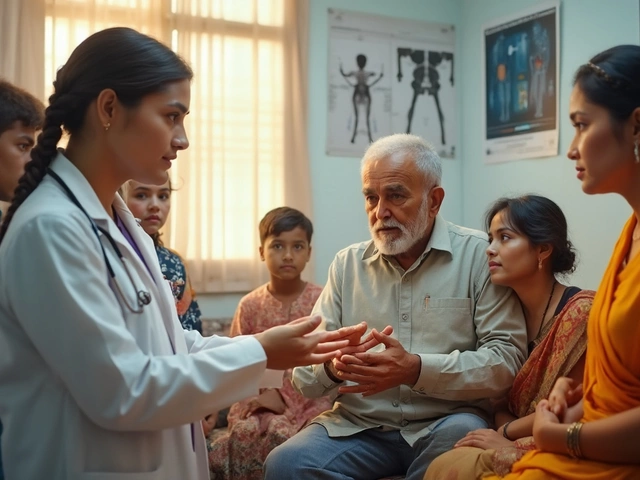Biological Mother – Understanding the Role and Impact
When talking about a biological mother, the woman whose egg contributes genetic material to a child. Also called the genetic mother, she can be the gestational carrier or share the role with a partner in modern families. In vitro fertilization (IVF), a lab‑based assisted‑reproduction technique that creates embryos from a mother’s eggs and a partner’s or donor’s sperm gives many biological mothers the chance to conceive when natural conception isn’t possible. Genetics, the study of how DNA from both parents combines to determine a child’s traits directly ties a biological mother to the child’s inherited characteristics. Finally, the ROPA method, Reciprocal IVF that allows two women in a same‑sex partnership to each be a biological mother—one provides the egg, the other carries the pregnancy expands the definition of motherhood beyond traditional models. These concepts interlink: a biological mother’s genetics are expressed through IVF‑created embryos, and the ROPA method lets both partners claim that label.
Key Factors for Biological Mothers
Understanding how genetics shapes a child’s health starts with the mother’s DNA. For example, mitochondrial DNA is passed only from the biological mother, influencing energy metabolism and certain disease risks. When a mother uses IVF, the lab can screen embryos for genetic conditions, giving her more control over potential health outcomes. The ROPA method showcases how two mothers can share biological contributions—one supplies the egg (genetic link) while the other provides the uterine environment, highlighting the distinct roles of genetics and gestation. Postpartum care, the period after birth when a mother’s physical recovery, nutrition, and emotional wellbeing are supported is crucial regardless of how conception occurred. Proper nutrition, gentle exercise, and mental health support help the biological mother recover and bond with the newborn, whether the pregnancy resulted from natural conception, IVF, or ROPA. Studies show that tailored postpartum plans improve breastfeeding success and reduce postpartum depression, underscoring the link between maternal health and infant development.
All these pieces—genetic contribution, assisted‑reproduction technologies, shared roles in the ROPA method, and focused postpartum care—form a comprehensive picture of what it means to be a biological mother today. Below, you’ll find articles that dive deeper into each area, offering practical advice, scientific explanations, and real‑world stories to help you navigate the journey of motherhood.

Understanding the Biological Mother in IVF: Who Really Is She?
In the world of IVF, the question 'Who is the biological mother?' can spark confusion. This article breaks down the concept, explaining the roles of genetic and gestational mothers in IVF. It explores how each contributes biologically and emotionally, helping potential parents understand the implications. With insights into the legal and personal dynamics of IVF, readers will discover the complexities of defining motherhood in this modern context.
read more



